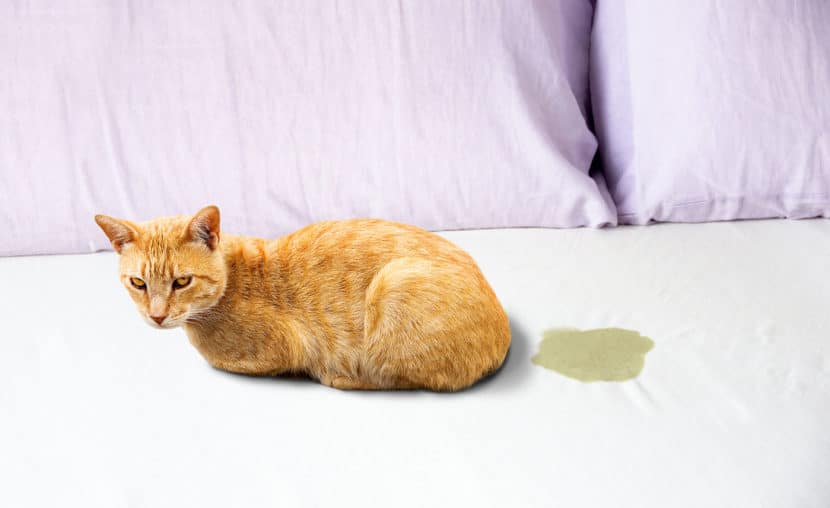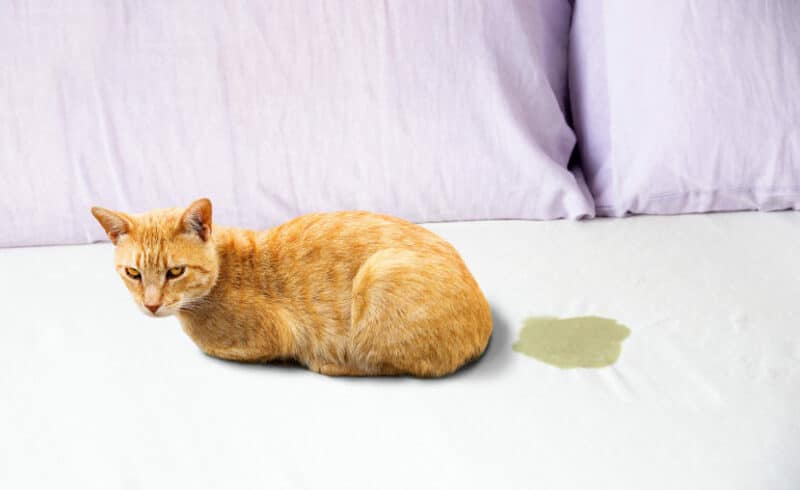Felines are obligate carnivores, consuming animal-based proteins for the bulk of their diet. That’s significant because it plays a direct role in our list of facts about cat pee below. Some scientists view cats as the ultimate example of evolution because of how well-adapted they are to their niche in the food chain, and you better believe their urinary system plays a supporting role.
The 6 Facts About Cat Pee
1. Urine Production Serves Several Functions
To confine the urinary system only to waste removal negates the other vital functions it serves for felines, humans, and other mammals. It also plays a crucial role in blood pressure by influencing blood volume and sodium retention. The body strives to maintain a balance between the concentration of ions within the inter- and intracellular environments.
The urinary system influences blood cell production through hematopoiesis. It maintains the electrolyte balance, which controls many critical functions. Basically, cat urine is imperative to the animal’s existence.
2. Scent Marking Is an Essential Component of Feline Non-Vocal Communication
Felines live in an olfactory world. Humans have only 2.5% of the scent receptors that our cats have 1. The sense of smell comes into play in many areas for cats where it doesn’t with humans. One way is through scent marking. Felines use this to delineate their territories. This non-vocal communication helps these animals avoid conflict.
Fights between cats are costly, whether you’re the victor or the loser. It makes evolutionary sense to avoid this gamble. Scent marking accomplishes this goal. Scent glands located near the cat’s hind end allow them to mark their space to prevent unnecessary encounters with other animals.
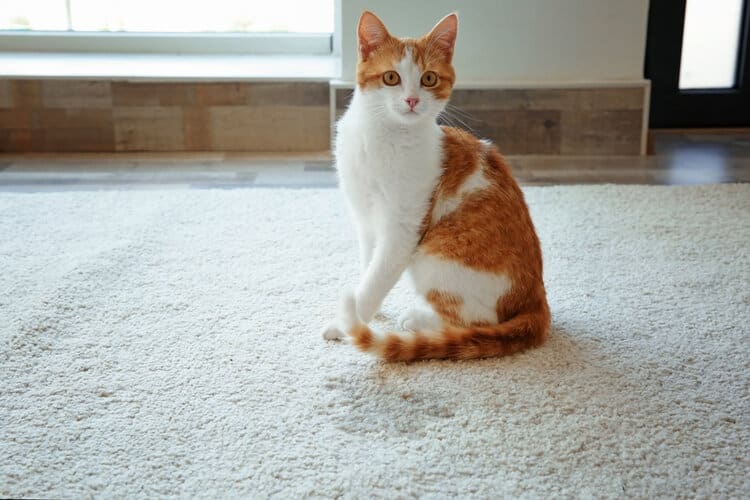
3. Cats Don’t Urinate as Frequently as Dogs
Cats don’t urinate frequently compared to dogs (two to four times per day compared to a dog’s three to five times). However, it’s often concentrated when they do. Much depends on the animal’s diet. If you feed your pet kibble, they will often drink more to meet the 4 ounces per 5 pounds of body weight they require 2. Of course, canned food provides more moisture. It’s worth noting that the fluids of the prey they eat satisfy this need for wild felines.
4. Frequent or Painful Urination Is a Sign of Urinary Stones
Domestic cats fed a commercial diet with enough water usually urinate about twice daily. That makes it easy to determine when something is amiss. Felines often hide pain and illnesses, making it challenging to identify them in the early and detectable stages. However, it’s hard for them to keep it under wraps if you notice frequent or painful urination. This is often a sign of urinary stones.
It’s essential to act quickly. Remember that the condition has been ongoing before these behavioral signs are evident. That’s good advice for anything unusual you observe with your cat. They are masters at hiding their weaknesses, after all.
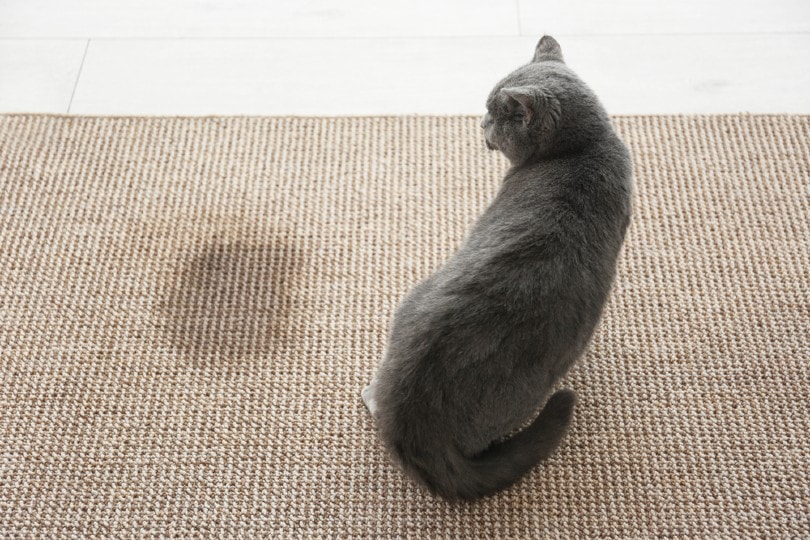
5. There Are Different Kinds of Peeing
If your cat is peeing outside the litter box, there is a chance that they are spraying instead of urinating. What’s the difference? Spraying or marking is often done on vertical surfaces and lets other cats know that something is theirs, whether it’s a toy or territory.
However, some cats also pee outside the litter box when stressed or nervous. This type of peeing is usually a call for help and appears on horizontal surfaces.
6. A Urinalysis Can Offer a Lot of Info About Your Kitty
Your vet may order a urinalysis as part of your cat’s annual exam, especially if they have a medical history of issues. This test yields much information, even if it’s not the most comfortable procedure for your pet to endure. It can tell your vet the state of your kitty’s urinary tract system. It can determine protein metabolism, bacteria, and electrolyte status. It’s also relatively non-invasive.
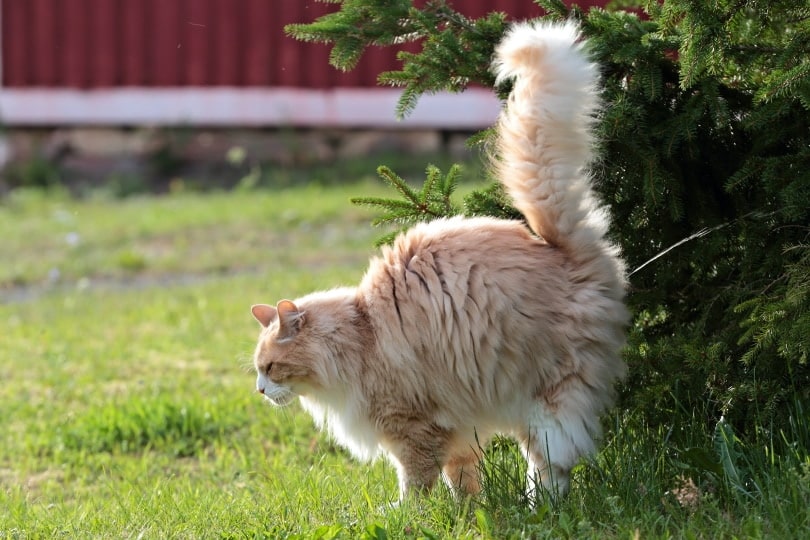
Tips for Your Cat’s Urinary System Health
To keep your cat healthy, we recommend filling your cat’s bowl with fresh, cold water daily. Remember that felines are scent-aware, so make sure you rinse it well after cleaning it. Of course, the amount your kitty drinks depends partly on the type of food you give your pet. However, other factors can affect their consumption.
For example, a diabetic cat may drink more than a healthy animal. Likewise, a pet experiencing vomiting or GI distress will need more water to make up for what they’re losing. Other signs of dehydration include the following:
- Lethargy
- Loss of appetite
- Loss of skin elasticity
- Pale gums
You should contact your vet if you notice any of these signs. They can indicate an underlying condition that requires treatment.
Conclusion
Your cat’s urinary system is vital for ensuring fluid and electrolyte balance in their body. Felines differ from many other animals because of their meat-based diet. Proper hydration is necessary so that this system can do its job efficiently. While cats often hide signs of illness, their urine and its production can often reveal when something is wrong.
Featured Image Credit: cunaplus, Shutterstock
Contents
- The 6 Facts About Cat Pee
- 1. Urine Production Serves Several Functions
- 2. Scent Marking Is an Essential Component of Feline Non-Vocal Communication
- 3. Cats Don’t Urinate as Frequently as Dogs
- 4. Frequent or Painful Urination Is a Sign of Urinary Stones
- 5. There Are Different Kinds of Peeing
- 6. A Urinalysis Can Offer a Lot of Info About Your Kitty
- Tips for Your Cat’s Urinary System Health
- Conclusion

